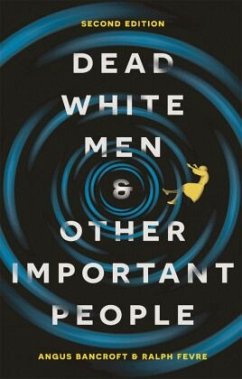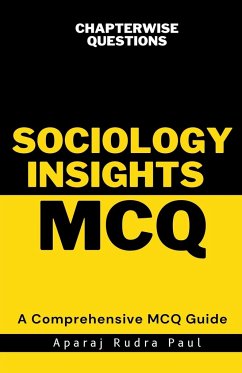
Sociological Insights of Great Thinkers
Sociology through Literature, Philosophy, and Science
Herausgeber: Edling, Christofer; Rydgren, Jens
Versandkostenfrei!
Versandfertig in 1-2 Wochen
71,99 €
inkl. MwSt.
Weitere Ausgaben:

PAYBACK Punkte
36 °P sammeln!
In this book, leading sociologists expand the scope of their discipline by revealing the sociological aspects of the works of great philosophers, scientists, and writers. Sociologists have long recognized that sociological insight can be gleaned from creative thinkers outside their formal discipline. Sociological Insights of Great Thinkers: Sociology through Literature, Philosophy, and Science captures and examines those insights in 32 essays that discuss scholars and writers not normally associated with any sociological school of thought. Following a tradition of enriching the sociological to...
In this book, leading sociologists expand the scope of their discipline by revealing the sociological aspects of the works of great philosophers, scientists, and writers. Sociologists have long recognized that sociological insight can be gleaned from creative thinkers outside their formal discipline. Sociological Insights of Great Thinkers: Sociology through Literature, Philosophy, and Science captures and examines those insights in 32 essays that discuss scholars and writers not normally associated with any sociological school of thought. Following a tradition of enriching the sociological toolkit by finding influence in philosophy and literature, the volume's contributors-an international group of renowned scholars-eschew biography to focus solely on sociological interpretations that can be drawn from the work of many of history's preeminent thinkers. Among the book's subjects are philosophers such as Aristotle, Plato, Kant, and Cassirer; scientists such as Darwin and Galileo; and authors such as Kafka, Proust, and Shakespeare. The essays not only allow readers to see such thinkers in a new light, but underscore the fact that sociological questions have lain at the very heart of humanity throughout history.













